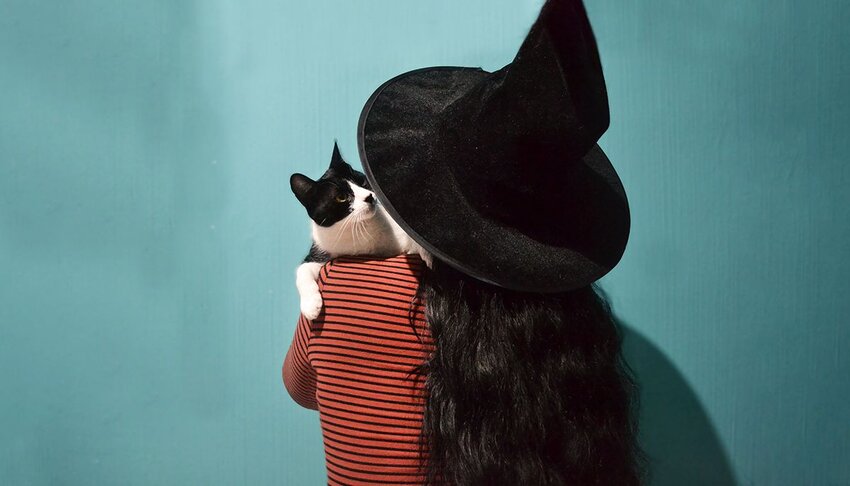If you’re not-so-secretly pining for a Hogwarts letter to appear in your mailbox, this one’s for you. Magic-practicing figures have existed for centuries, but what exactly is the difference between witches, wizards, warlocks, and other supernaturally-empowered titles? Prepare to become spellbound as you learn about these enchanting terms and which one applies to each master of magic.
Wizard
When you think of a wizard, you might picture two things — a Gandalf-esque flowing white beard or, well, a teenage boy in glasses with a lightning-shaped scar. "Wizard" comes from the medieval contraction “wise’ard,” which was used to describe a person whose opinions on various matters were worth hearing. Philosophy and magic were often considered one and the same until the Middle Ages, which is why the term was given to great thinkers and would-be spell-casters alike. In the 1920s, the original overarching meaning of the word came back into fashion, and "wizard" came to be synonymous with "guru" or "expert."
Warlock
This dramatic title is most often associated with a darker type of magic, if the etymology is taken into consideration. It’s based on the Old English word wǣrloga, which means scoundrel or monster. The word was originally applied to the devil before being used to describe people in cahoots with the devil. Eventually the word took on a slightly more placid meaning and is now commonly applied to male witches.
Witch
"Witch" comes from the Old English word wicca, which includes two variations to delineate between male witch (wicca) and female witch (wicce). While there seems to be some ties to the German verb wichelen, meaning to bewitch, the exact etymology of the word is disputed. What’s particularly interesting is how the word used to be gender neutral until the 17th century when it became largely associated with women. In fact, by 1601, it was common to refer to a "he-witch" or "men-witches."
Sorcerer and Sorceress
Much like warlocks and wizards, the term "sorcerer" is closely linked to men, while women are given a feminine version with the “-ess” suffix. Both male and female terms have clear ties to the mystical since they're based on the Latin root word of sors, which means fate. Linguists believe "sorcery" in particular was used to describe a type of magic focused on changing fate through unnatural or evil ways or the conjuring of evil spirits.
Magician
In modern times, magicians only present the illusion of magic such as pulling a rabbit out of a hat. The original root word comes from a Proto-Indo-European root, magh, which means to have power or be able. Unlike other types of magical practitioners, magicians were not ostracized in the Middle Ages when most of these terms were introduced. They practiced natural magic, which didn’t involve evil spirits and could be explained away by medieval science.
Enchantress
This feminine and captivating take on witchcraft comes from the Latin terms in and cantare — meaning to sing. While the word was originally crafted in the 14th century as a synonym for "witch," the 18th-century definition of a beguiling woman has won the long game. One definition of the verb "enchant" means to put someone under a spell.
Photo credit: Christina Hernández/ Unsplash

